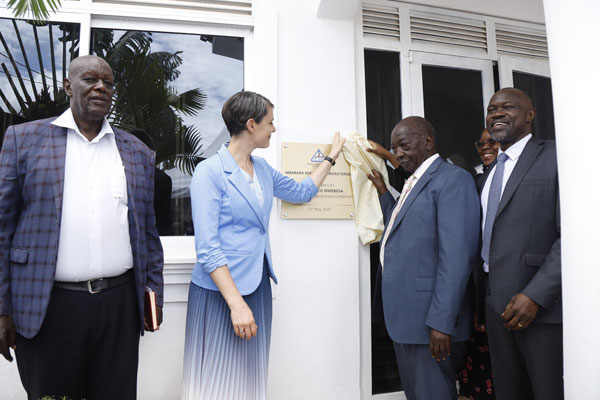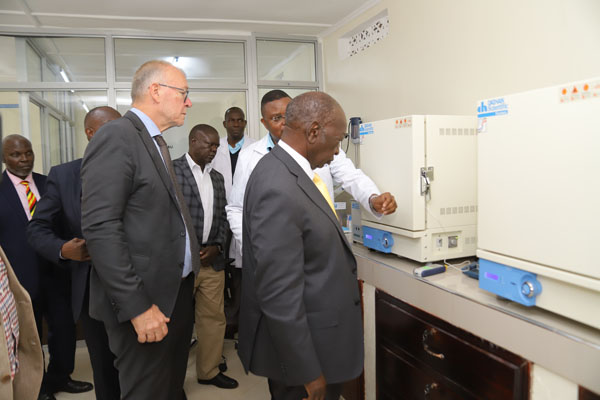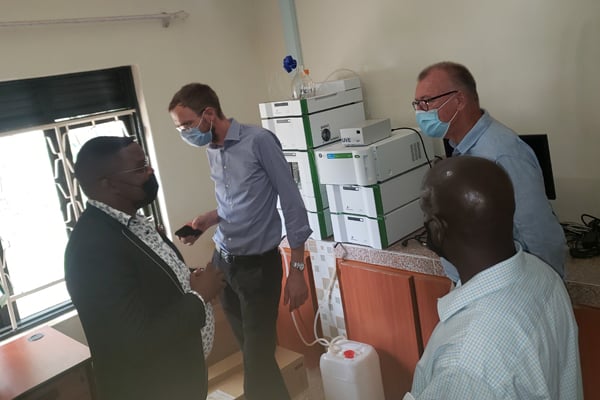UNBS launches third standards laboratory in Mbarara

Danish Ambassador to Uganda Signe Winding Albjerg (2L), Trade Minister Francis Mwebesa (2R), and other officials, unveil a foundation stone during the launch of the third Regional Food Safety Laboratory in Mbarara City at the weekend. Photo / Courtesy
What you need to know:
- The laboratory is the third under the Uganda National Bureau of Standards (UNBS) Regional Food Safety Project
Trade Minister Francis Mwebesa has launched a new regional standards testing laboratory in Mbarara City, western Uganda.
The laboratory, which is the third under the Uganda National Bureau of Standards (UNBS) Regional Food Safety Project, seeks to improve standards, enhance regional competitiveness and reduce the cost of business.
Speaking at the launch in Mbarara City at the weekend, Mr Mwebesa said there will be no reason as to why UNBS will take weeks to certify a product, given that it now has enhanced capacity to handle goods at different laboratories.
“I now expect to see a significantly reduced turnaround time for analysis of product samples,” he said, noting that the laboratories should also improve competitiveness of regional industries.
The $4.4m project, which is funded by the Danish government and Trademark Africa, has so far established three laboratories in Mbarara, to serve western Uganda, Mbale (eastern) and Gulu (northern).
Ms Anna Nambooze, the Trademark Africa Uganda and South Sudan country director, said the project places Uganda in poll position to share into nearly $35 trillion expected from the African Continental Free Trade Area, which emphaises standards.
The project comes at a time when small businesses have been spending heavily on testing and certifying their products in Kampala.
“I urge [small business] to take advantage of [these facilities], which should reduce the cost of doing business by eliminating the cost of seeking testing services from central laboratories in Kampala,” Mr Mwebesa said, noting that product testing and certification was essential to ensure that human and public health is protected.
The project also seeks to enhance product quality at a time when UNBS says more than 50 percent of products on the Ugandan market are substandard.




